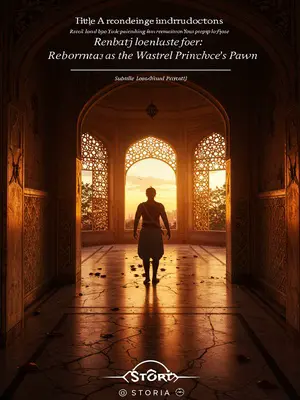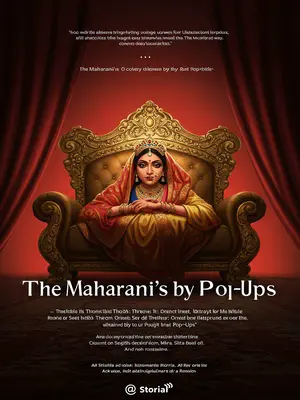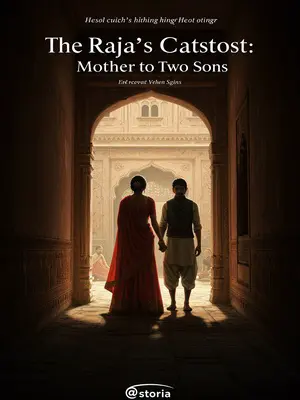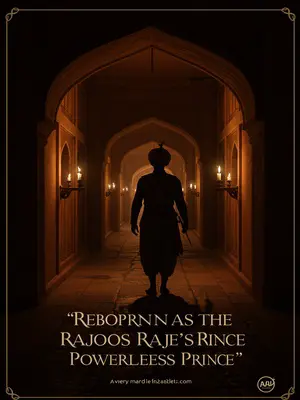Chapter 1: Betrayal in the Bloodline
The Maharaja’s fury was a living thing. His eyes blazed, and his grip tightened around the ornate ivory-handled cane he always carried—a symbol of the family’s centuries-old rule. For a moment, his gaze flickered to the ancestral portrait looming over the durbar hall, the stern faces of his forefathers watching in silent judgment. Betrayal in his own bloodline—how could it come to this? His moustache bristled as he roared for his trusted Diwan, the gold rings on his fingers flashing in the lamplight. “Yeh kya ho raha hai hamare mahal mein?” His voice thundered through the marble corridors, rattling the very windows. Servants vanished into corners, the weight of tradition and disgrace thickening the air. Every ritual demanded by custom was invoked: the kotwal arrived, and the family priest sprinkled holy water, chanting to drive out evil before the arrest could proceed.
Amit Mehra was dragged away as chaos erupted. His mother, sari pallu slipping from her shoulder, rushed to the threshold. She fell to her knees at the police officer’s feet, clutching his boots desperately, her bangles jangling wildly as she sobbed, “Mere bete ko mat le jaiye!” The red beacon atop the police jeep cast garish flashes across the rain-slicked courtyard. The scent of wet earth mixed with the metallic tang of fear; monsoon raindrops pattered steadily against the palace tiles, as if mourning the family’s disgrace. The eldest prince’s involvement in black magic to harm his brother was thus confirmed, and the scandal’s shadow crept swiftly through every corner of the estate.
Within hours, word raced beyond the palace walls. At Sharma ji’s tapri, someone muttered, “Arre, suna kya? Raja ke ghar mein bhi kaala jaadu ho raha hai!” Chowkidars at the gate shook their heads, gardeners gossiped as they swept fallen gulmohar petals, and even the sweeper’s boy whispered, wide-eyed, about the shame now clinging to the royal family.
The punishment was swift and public. In a somber ceremony, the Maharaja himself removed Amit’s regal pagri, his hands trembling just a fraction. One of the uncles wiped his eyes with the edge of his angavastram, unable to meet Amit’s gaze. The family elders shifted uncomfortably, as if the very air had turned heavy. Amit was stripped of all his titles and placed under house arrest in the family’s crumbling ancestral bungalow—a sprawling, faded haveli crouched at the edge of the estate. His meals arrived through a silent side door, and only his mother was permitted to visit during festivals. The world he knew shrank to four peeling walls and the echo of betrayal.













